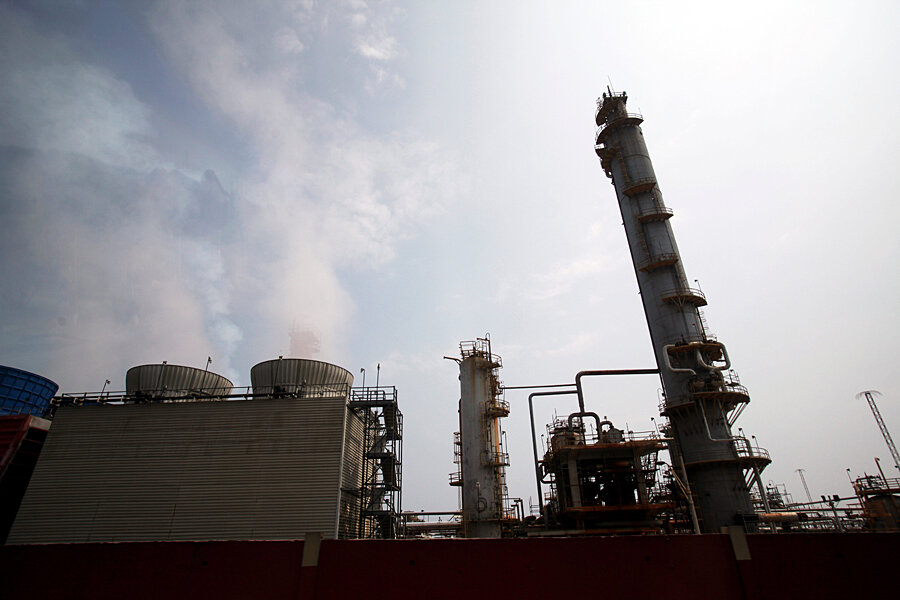Oil prices free fall: Why Venezuela stands to lose the most
Loading...
Oil prices continue to slide, putting enormous pressure on oil producers around the world.
Saudi Arabia has insisted it is willing to live with lower prices for quite a while as it seeks to maintain a grip on its market share. Kuwait also indicated its willingness to slash prices in order to keep output level. That sent oil prices lower on Oct. 14, as the markets reacted with a bit of surprise to the unwavering stance by OPEC’s leading members: WTI dropped 4.5 percent.
Lower oil prices are putting a strain on all producers, including Saudi Arabia, but Riyadh is hoping that the economic pain will be much greater for some of its competitors. That includes U.S. shale producers, which have higher average production costs.
In fact, an estimated 2.8 percent of total worldwide oil production could become unprofitable if oil prices drop below $80 per barrel, according to a new report from the IEA. Canadian oil sands projects topped the list, but U.S. shale might not be far behind. (Related: World’s Most Expensive Oil Project Just Got More Costly)
But while Saudi Arabia tests the mettle of North American producers, it could be Venezuela that is the most vulnerable. As a fellow OPEC member, Venezuela has been the most vocal about the need to cut oil production and has called for an emergency meeting of the 12-member oil cartel. That is because Venezuela is in a much weaker position than many of the other member countries, and the recent drop in prices has raised alarm in Caracas.
Using state-owned oil company PDVSA as a piggy bank has allowed the Venezuelan government to increase social spending over the last decade, a key political objective of the late President Hugo Chavez and his successor, Nicolas Maduro. However, using oil revenues for a wide array of spending priorities has also starved PDVSA of money needed for investment in order to boost oil production, let alone keeping output level. Since 2000, Venezuela has seen its oil output drop from 3.5 million barrels per day (bpd) down to 2.5 million bpd.
The bad news for President Maduro is that there was major unrest earlier this year even when oil prices were above $100 per barrel. That is because oil makes up 97 percent of Venezuela’s foreign earnings, and the country needs oil prices of around $120 per barrel for its bloated budget to break even.
Venezuela is in an economic crisis. Annual inflation is estimated to be in excess of 60 percent. The country’s economy actually shrank at a rate of 5 percent in the first six months of 2014. Shortages of food, medicine, shampoo, diapers, and other basics are so common that the government rolled out a plan this past summer to fingerprint people at grocery stores.
Crime is so rampant in the capital that people are afraid to go out at night. For those who can afford it, leaving the country has become the best option. (Related: Dropping Oil Prices Send Shockwaves Through Energy Sector)
The government is heavily indebted, and Venezuela’s bonds are now competing with Ukraine’s for the mantle of the world’s riskiest. With bond yields surpassing 16 percent, Venezuela cannot keep up. There is a 50-50 chance of default within the next two years, according to credit rating agency Standard & Poor’s.
The sudden 20 percent decline in oil prices since June is compounding the problem and has the potential to throw the country into crisis. “Venezuela’s oil prices have been high for several years now, and the country is still struggling to pay its debt at those prices,” Russ Dallen of Caracas Capital Markets told The Wall Street Journal. Lower oil prices could bring things to a head.
The Maduro government desperately needs a rise in oil prices, but Saudi Arabia has so far rebuffed calls for an emergency meeting as it pursues a strategy of waiting out higher cost competitors. OPEC does not plan on meeting until Nov. 27. That is an eternity for a country that is beginning to unravel.
By Nick Cunningham of Oilprice.com
More Top Reads From Oilprice.com:
- Oil Panic Favors The Bold
- Why Appearances Can Be Deceiving In European Oil Markets
- Does This $1.5 Billion Shale Purchase Signal A Change?
Source: http://oilprice.com/Energy/Oil-Prices/Falling-Oil-Prices-Could-Push-Venezuela-Over-The-Edge.html





